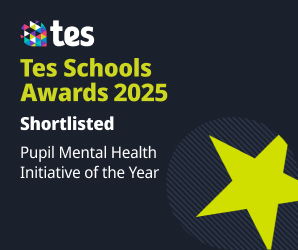Business
What is the intent of our Business Curriculum?
Business is front-page news. The way companies operate is under greater scrutiny than ever before and TV programmes like The Apprentice and Dragon’s Den have raised the profile of Business to a new generation. The Business curriculum at SKA investigates the four key business functions of Marketing, Finance, Human Resources and Operations, as well as considering the external business environment. Students are encouraged to research current business affairs through up to date examples and to develop a critical understanding of business behaviour. All students will be exposed to the formal business environment, they will learn to present their work professionally, to shake hands, to make eye contact and to communicate their ideas with confidence. They will also learn to work with others and develop their own views on ethical and sustainable business behaviours.
Co-curricular and Enrichment opportunities
Within the Business and Finance areas students have a range of opportunities to work with external businesses. Each student will experience a job interview with a local business, and will experience presenting their work to a local company. They will also have the opportunity to take part in the Student Investor Program, Young Enterprise and Young Financial Journalist of the Year competition.
Years 10 & 11
Course Title: GCSE Business
Exam Board: AQA
Qualification: GCSE
About the course
Students will consider the practical application of business concepts. The units provide opportunities to explore theories and concepts using current examples, through the context of events in the business and economic world. The knowledge and skills gained from this specification will provide students with a firm foundation for further study in Business and Finance.
How it is assessed
Paper 1- Influences of operations and HRM on business activity.
What's assessed
- Business in the real world
- Influences on business
- Business operations
- Human resources
How it is assessed
- Written exam: 1 hour 45 minutes
- 90 marks
- 50% of GCSE Questions
- Section A has multiple choice questions and short answer questions worth 20 marks.
- Section B has one case study/data response stimuli with questions worth approximately 34 marks.
- Section C has one case study/data response stimuli with questions worth approximately 36 marks.
Paper 2: Influences of marketing and finance on business activity.
What's assessed
- Business in the real world
- Influences on business
- Marketing
- Finance
How it is assessed
- Written exam: 1 hour 45 minutes
- 90 marks
- 50% of GCSE Questions
- Section A has multiple choice questions and short answer questions worth 20 marks.
- Section B has one case study/data response stimuli with questions worth approximately 34 marks.
- Section C has one case study/data response stimuli with questions worth approximately 36 marks
For further information: GCSE Business Specification AQA
Years 12 & 13
Course Title: IB Business and Management
Exam Board: IB
Qualification: IBCP
About the course
The business management course is designed to develop students' knowledge and understanding of business management theories, as well as their ability to apply a range of tools and techniques. Students learn to analyse, discuss and evaluate business activities at local, national and international levels. The course is underpinned by 4 key concepts: change, ethics, creativity and sustainability. These concepts are integrated into the conceptual understandings of all the units to ensure that a conceptual thread is woven throughout the course.
Structure
Students further their understanding of the four key functional areas of a business by looking in more detail at the following:
- The Business Environment: What are businesses? How are they stated? How can they be classified? After this initial introduction, students consider the impact of business decisions on different stakeholders, they consider the reasons for and methods of business growth and learn how to use a range of planning tools. We also look in detail at the external environment and will discuss the impact of the current climate on business behaviour. We will consider how the pandemic has impacted the economic environment at home and abroad in terms of interest rates and inflation, as well as how is has changed the social values and behaviours of individuals.
- Human Resource Planning: Students learn about workforce planning as well as how different individuals are motivated; what makes a good leader; how different organisations are structured, as well as how to create the desired culture within your organisation.
- Marketing: The broad role of the marketing team is considered as students learn about the 7Ps of marketing, comparing how different businesses constantly change and adapt their portfolios. Students learn tools such as sales forecasting and review the benefits of ecommerce.
- Operations Management: Students develop an insight into sustainability and ethical behaviour in operations. They research the ethical practices of different businesses and learn to develop their own moral code. Lean production and quality are considered, as well as production methods and crisis management.
- Finance: This section requires an understanding of financial concepts, more than mathematical skills, although a general competency in mathematics is required. Students learn about different sources of finance, and different costs incurred to run a business. They will learn to complete final accounts and cashflow forecasts, to calculate Profitability and Efficiency, and to compare budgets and appraise investments.
How it is assessed
Internal Assessment: 20% (20 hours)
Students produce a research project about a real business issue or problem facing a particular 20% 7 Business management guide organisation using a conceptual lens. Maximum 1,800 words. (25 marks)
External Assessment: 80%
Students take three written examinations of 135 minutes each
Paper 1: 25% (1 hour 30 minutes)
Students answer a range of questions based on a preseen case study
Paper 2: 30% (1 hour 45 minutes)
Paper 2 is based on unseen stimulus material with a quantitative focus. Students are required to complete a range of calculations and apply their learning to the given scenario.
Paper 3: 25% (1 hour 15 minutes)
This paper is for HL students only and is based on unseen stimulus material about a social enterprise. Students answer an extended, unstructured question about the material presented.
For further information: IB Business and Management Course








